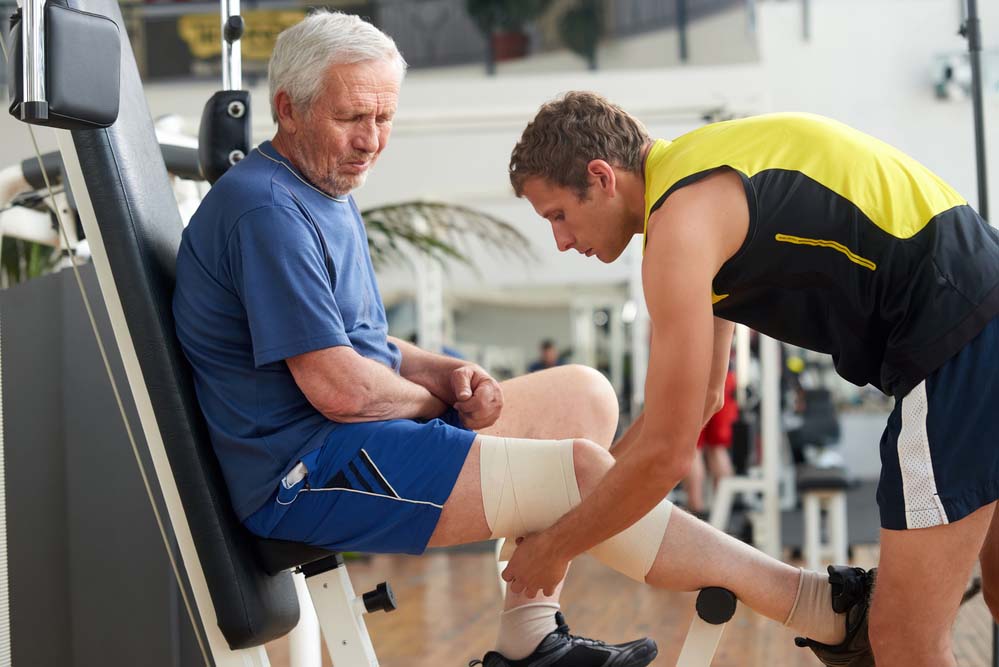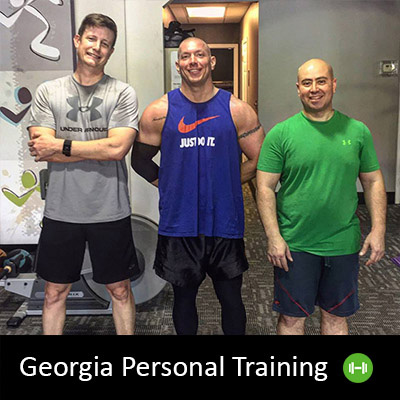Georgia Personal Training
In a world where fitness is often showcased as high-intensity workouts and extreme physical challenges, it can be daunting for those with reduced mobility to find suitable ways to stay active. However, at Georgia Personal Training we provide Reduced Mobility Personal Training and believe that everyone deserves to experience the benefits of exercise, regardless of their physical abilities. This blog post aims to shed light on accessible fitness, highlighting adaptive training methods and inclusive workouts tailored for people with disabilities. Whether you are someone with reduced mobility, a personal trainer, or a fitness enthusiast eager to make a difference, you will find valuable insights and practical tips throughout this guide.
Understanding Reduced Mobility
Reduced mobility can stem from various conditions, including physical disabilities, chronic illnesses, or injuries. It’s essential to recognize that reduced mobility doesn’t mean the end of physical activity. In fact, exercise can significantly enhance the quality of life for individuals facing such challenges.
The Importance of Accessible Fitness
Accessible fitness is not just a trend; it is a necessity. Providing adaptive training options ensures that everyone has the opportunity to improve their health, boost their confidence, and engage in social activities. Inclusive workouts promote physical well-being and foster a sense of belonging and empowerment.
Adaptive Training Explained
Adaptive training involves modifying exercises and fitness routines to accommodate individuals’ unique needs and capabilities. It focuses on leveraging strengths while working around limitations, ensuring safe and effective workouts.
Benefits of Adaptive Training
Adaptive training offers numerous advantages. Firstly, it enhances physical health by improving cardiovascular fitness, strength, flexibility, and balance. Secondly, it boosts mental well-being, reducing anxiety and depression. Lastly, it fosters a sense of achievement and independence.
Assessing Individual Needs
Before embarking on an adaptive training program, it is crucial to assess individual needs. This includes understanding the person’s mobility level, any specific limitations, and their fitness goals. A thorough assessment ensures a customized approach that maximizes benefits and minimizes risks.
Developing a Personalized Exercise Plan
Creating a personalized exercise plan is key to successful adaptive training. This plan should include a variety of exercises tailored to the individual’s abilities and preferences. It is important to start slow and gradually increase the intensity and complexity of workouts.
Strength Training for Reduced Mobility
Strength training can be highly beneficial for individuals with reduced mobility. Exercises such as seated resistance band workouts, modified push-ups, and wheelchair-compatible weightlifting can help build muscle and improve overall strength.
Cardiovascular Workouts for All
Cardiovascular health is vital for everyone. For those with reduced mobility, options like seated aerobics, hand cycling, and water exercises offer effective ways to get the heart pumping without putting undue stress on the body.
Flexibility and Balance Exercises
Maintaining flexibility and balance is crucial for preventing injuries and improving daily functionality. Stretching routines, yoga, and Tai Chi can be adapted to suit various mobility levels, enhancing range of motion and stability.
Utilizing Assistive Devices
Assistive devices, such as resistance bands, stability balls, and specialized gym equipment, play a significant role in adaptive training. These tools can help modify exercises to ensure safety and effectiveness.
Creating an Inclusive Fitness Environment
Creating an inclusive fitness environment is about more than just physical accessibility. It is about fostering a welcoming atmosphere where individuals with disabilities feel comfortable and supported. This includes offering modified equipment, accessible facilities, and knowledgeable staff.
Tips for Personal Trainers
Georgia Personal Trainers working with clients with reduced mobility always prioritize communication and empathy. It is essential to listen to clients’ needs, provide clear instructions, and offer constant encouragement. Continuous education on adaptive training techniques is also beneficial.
Engaging with the Community
Building a supportive community around accessible fitness can have a profound impact. Encouraging group workouts, organizing inclusive fitness events, and sharing success stories can inspire others to join the movement towards adaptive training.
Overcoming Common Challenges
Adaptive training may present challenges, such as finding suitable exercises or dealing with fluctuating health conditions. However, with creativity and persistence, these obstacles can be overcome. Seeking advice from healthcare professionals and adaptive training experts can provide additional guidance.
Celebrating Success
We feel at Georgia Personal Training that every milestone in adaptive training is worth celebrating. Recognizing progress, no matter how small, boosts motivation and reinforces the positive impact of exercise on overall well-being.
Conclusion
Accessible fitness is more than a workout; it is a gateway to improved health, increased confidence, and a richer social life. By embracing adaptive training and inclusive workouts, we can ensure that everyone, regardless of their mobility level, has the opportunity to thrive. If you are ready to explore more and take the first step towards accessible fitness, consider reaching out to professionals who specialize in adaptive training. At Georgia Personal Training we make fitness a universal right, not a privilege.
Georgia Personal Training for Special Needs
Georgia Personal Training is located right next door to the Just People facility. We work closely with the staff at Just People Village, anytime we are working with one of their residents. The staff at Just People is really great. They coordinate with us in bringing the training clients over to the gym for their workouts. When the workouts are finished, the Just People staff coordinates getting the client back to their living quarters. Everything in the process is designed to make the training sessions a great experience for the customer.
The vast majority of the folks we have worked with really do enjoy the workouts. They look forward to coming over to the gym and you can see their excitement grow when the workout starts. Our experience with these special needs folks has really been a great one. Working with them is a truly a humbling and moving experience. The exercises are difficult for them, but, yet they try so hard to do them. You know it’s working for them when you see them smile, laugh and give out hugs to the training staff and other gym members.
ADRIAN WAS DIAGNOSED WITH PARKINSON’S AT AGE 40
The Roswell Fitness Factory/Georgia Personal Training
9420 Willeo Road (Suite 105)
Phone: (770) 241-1086
Email: matthewlein@bellsouth.net



